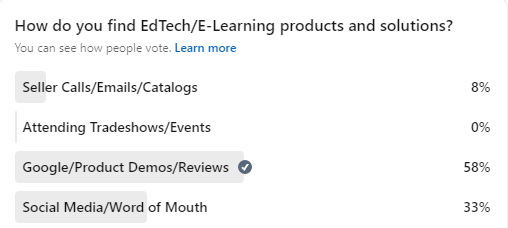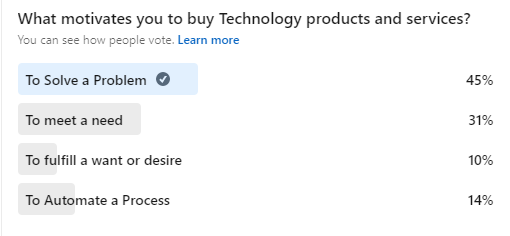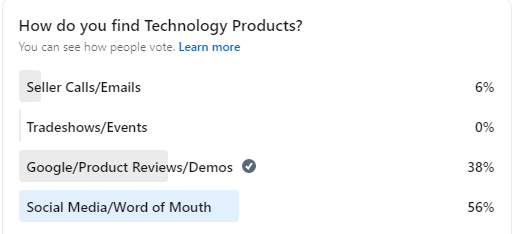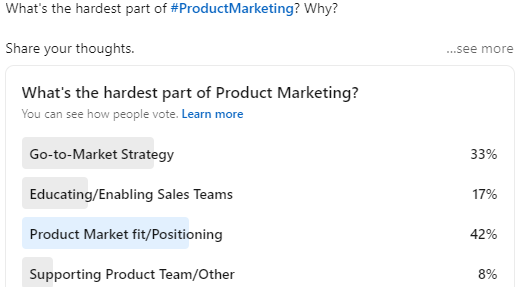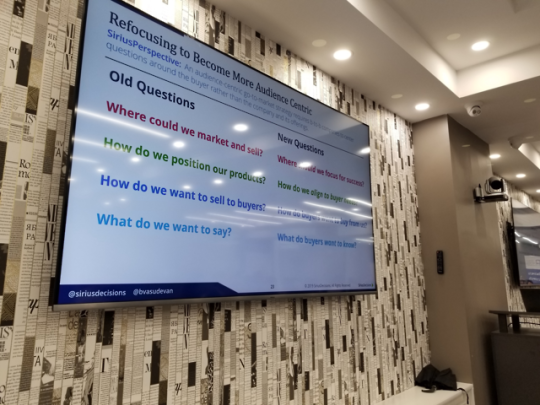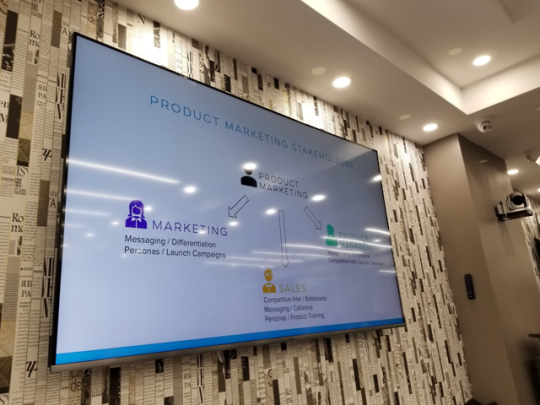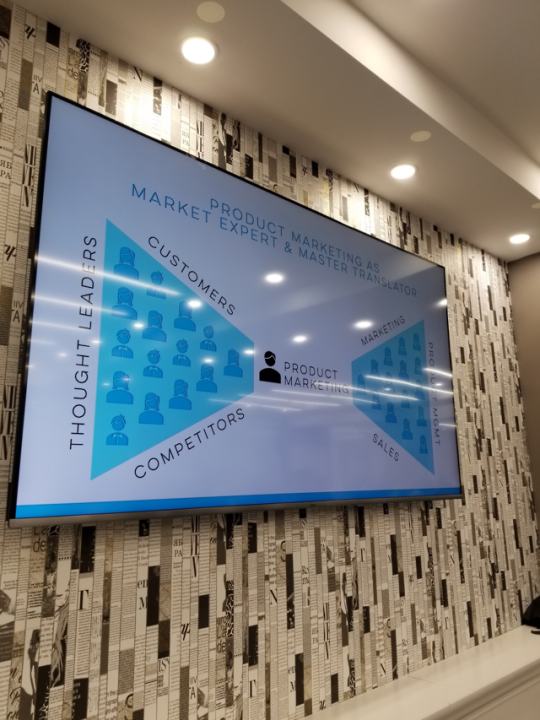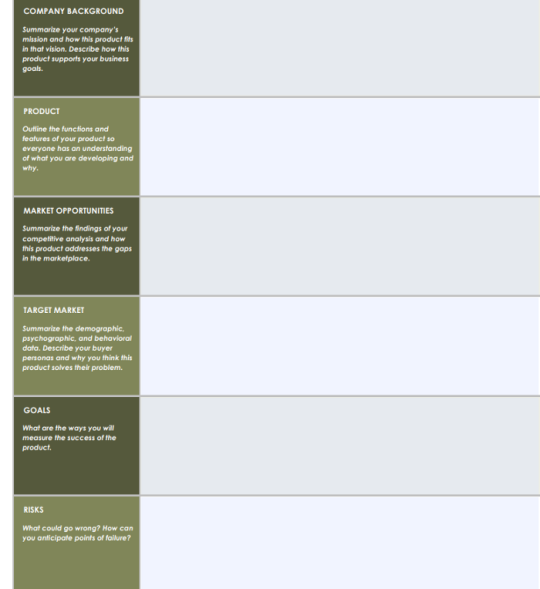The Reasons People use Marketing & The Challenges & Priorities of Marketers
I asked my LinkedIn audience If the Sales and Marketing function were merged and run by Sales, What would be your main focus? Why?
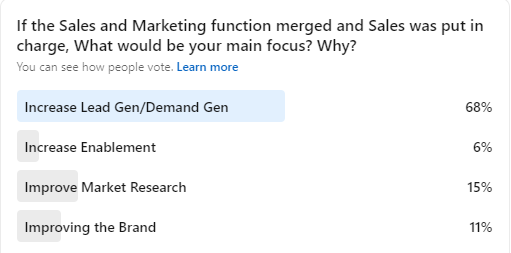
As you can see, 68% of those surveyed said that increased lead generation and demand generation was a top priority. What this means is that people see Marketing as a vehicle to increase Sales and Revenue.
Marketing also serves as an Enablement for Sales Teams, Customer Success, support, and even employer branding. Many companies have created a dedicated enablement function. Companies sit employer branding and Recruitment Marketing in HR. However, there are still a lot of companies without dedicated enablement and employer branding functions.
Everyone looks to the marketing department. The lines between product, marketing, sales, and customer success are blurring. Marketers need to be able to serve different parts of the organization.
Marketers do traditional work of branding, advertising, market research, content creation, and enablement, but these tasks support the larger goal of increased Sales and Revenue. Marketers impact Sales by filling up the Sales pipeline, pre, and post-sale. In the end, Marketers need to make a business case to justify their existence.
Why do People use Marketing?
People use Marketing for different reasons and they have different sets of challenges concerning the Marketing they do. I conducted two surveys of my LinkedIn audience.
I asked the following:
1. What do you hope to gain from your marketing efforts?
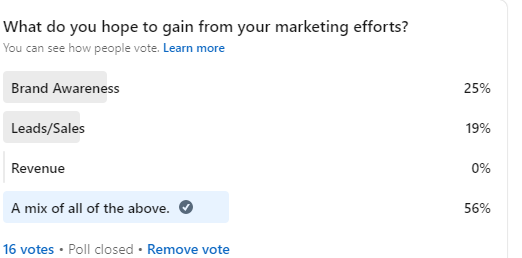
Based on the survey, most people want the marketing mix of brand awareness, leads, sales, and revenue in exchange for their marketing efforts.
2. What is your biggest marketing challenge? Why?
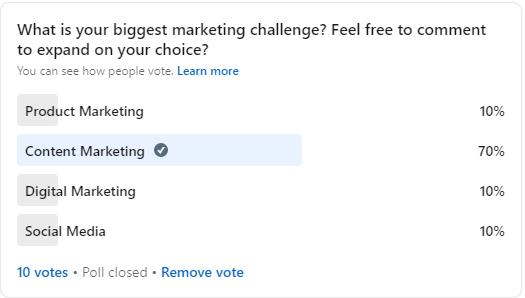
Based on survey findings, 56 percent of people use Marketing for a mix of brand awareness, lead generation, and revenue. In terms of Marketing challenges, 70 percent said that Content Marketing was the biggest.
What should be the main priorities of Marketers? What do you hope to gain from your marketing? What is your biggest marketing challenge?
Share your thoughts.
Additional places to find my content and blog
WordPress: http://dangalante.me/
Tumblr: http://www.askdangalante.com/
LinkedIn: https://www.linkedin.com/today/author/DanGalante
Medium https://medium.com/@DanGalante
YouTube https://www.youtube.com/trendsettingsm
Anchor https://anchor.fm/dangalante
About Me
I’m a Strategic Marketer with Field Sales, Sales Enablement, Content Creation, and, Classroom Teacher/Trainer skill-sets using Marketing to drive Sales/Growth.
As a Marketer, I’ve worked with Start-Ups, a Political Campaign, and a Digital Marketing Conference.
I’m certified in Inbound Marketing with classes in Marketing, Product Management, Product Marketing, SEO, SEM.
Before teaching, I was an Outside Sales and Marketing Rep. selling and marketing dental products to Dentists using consultative selling, trade show marketing, field marketing, and market research.
I publish Sales, Marketing & Social Media Today a blog covering industry events and trends.
I’m seeking a full-time role in:
Inbound Marketing, Digital Marketing, Content Marketing, Product Marketing, Demand Generation, Social Media Marketing, Sales Enablement Enablement, Sales Strategy, Marketing Strategy, Employer Branding, Recruitment Marketing.
Open on title, industry, company, location, and level. Reach out on LinkedIn or at dan@dangalante.com to start a conversation.

